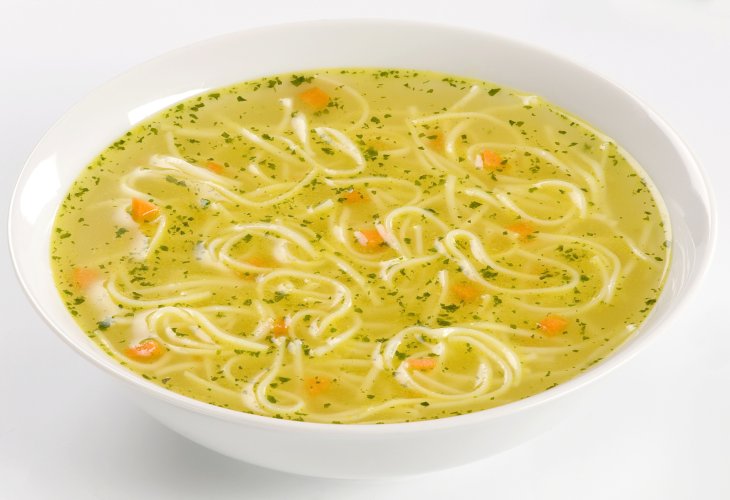Hot Meal, Begin with Wisdom
Potato chips initially cooked by a non-Jew are permitted, but a hot meal prepared by a non-Jew is forbidden. Fast food isn't always the simplest solution (depending on kosher certification, of course)

Hot meal - a great solution for quick times. After removing the aluminum foil cover from the hot meal container, it appears as if the best chefs in our Holy Land worked hard to prepare a nutritious lunch for us, but those in the know will tell you that almost nothing was actually cooked in the factory that claims to represent the brand you chose. They simply mixed different types of imported foods that had already undergone an initial cooking process while still overseas. All that remained was to package them in an impressive box and add dried seasonings and herbs, and there you have your glorious hot meal... The favorite among these meals is noodles, but mashed potatoes or rice decorated with various legumes like peas and the like also hold a place of honor.
Yet the mystery remains: how is kosher certification possible for these types of foods, since the initial cooking was done by non-Jewish factories, and before that cooking, the food is completely inedible?!
Let's delve into the secret - If we assume a situation where a non-Jew cooks food for us, and after the food is fully cooked and made edible, the non-Jew performs some action that succeeds in returning the food to its previous state to the extent that it's no longer edible without further cooking, how should we relate to this food from a halachic perspective? Should we consider it as food cooked by a non-Jew that is forbidden to eat, or perhaps - since the food has returned to its original state and the initial cooking done by the non-Jew is nullified - this food does not fall under the prohibition of non-Jewish cooking? And if we believe that the non-Jew's initial cooking was nullified, what about the opposite situation - if a Jew cooked initially and after the food was cooked, the Jew managed to return the food to its original state, and then a non-Jew came and cooked the food for us, would the food now be forbidden?
Complicated? Not at all, this is essentially the story behind the hot meal. Take noodles for example, which are a mixture of flour and water that undergoes scalding in boiling water somewhere in the Far East, and is then conveyed to drying ovens, so that in the final stage the noodles become hard and inedible without re-cooking. Peas or rice go through the same process.
This interesting issue was raised several years ago by the head of the Badatz, Rabbi Moshe Yosef Shlita, before the late Maran ZT"L, albeit in a different but essentially identical situation regarding potato flakes produced in Eastern European countries like Poland. The question was whether it would be permissible to fill pastry dough with them for making burekas, since the potatoes, after being peeled by water jets, enter an elevator that dumps them into cooking vats, and only after the potatoes are fully cooked, are they ground, flattened, and transported over Teflon mesh into a drying oven until they become dry flakes. Here too, the initial cooking done by the non-Jew was nullified, since the flakes are no longer edible without thorough re-cooking.
Indeed, Maran unequivocally supported the Badatz ruling to consider potato flakes as items not subject to the prohibitions of non-Jewish cooking, even though their production process takes place abroad. By the way - Maran ZT"L followed Rabbi Yosef Karo ZT"L who permitted the people of his generation to eat burgul (similar to couscous but coarser), even though it is wheat cooked by non-Jews before being dried.
So in practice, there is no prohibition against consuming hot meals containing imported ingredients from abroad without other kosher concerns, apart from having undergone initial cooking in a factory where only non-Jews are employed, and arriving to us in a state that is inedible without re-cooking. However, one must take into account that this comes at the expense of the opposite side - if a non-Jew wants to save you time and opens the hot meal container for you and cooks it, you have a kosher problem of non-Jewish cooking. This is because the hot meal is not edible without the cooking that the non-Jew has now done.
For education - Today the Badatz is stricter in requiring that all cooking of potato flakes be done by a Jew, so that in practice, only our representative operates the elevator into the cooking vats. Moreover, before the production line begins, the factory abroad undergoes kosherization of all cooking vats and conveyors, to purify them from the cooking that the factory did on its own. This is because the imported potato flakes today are made edible without the need for re-cooking, as they are ready to eat with just the addition of cold water.

